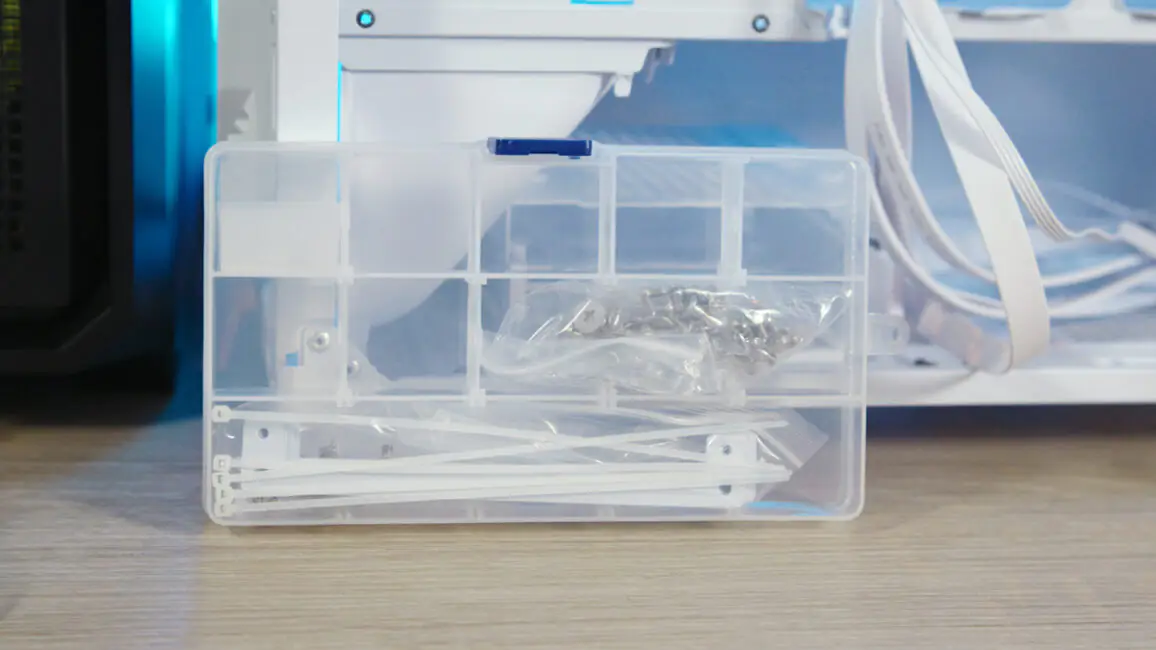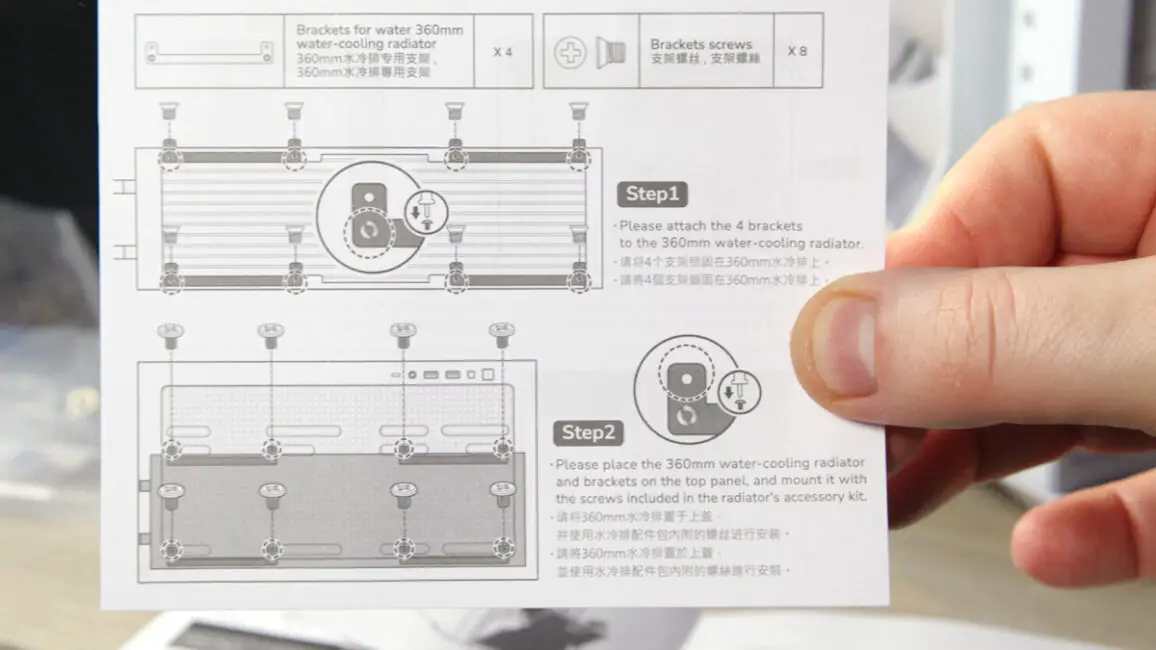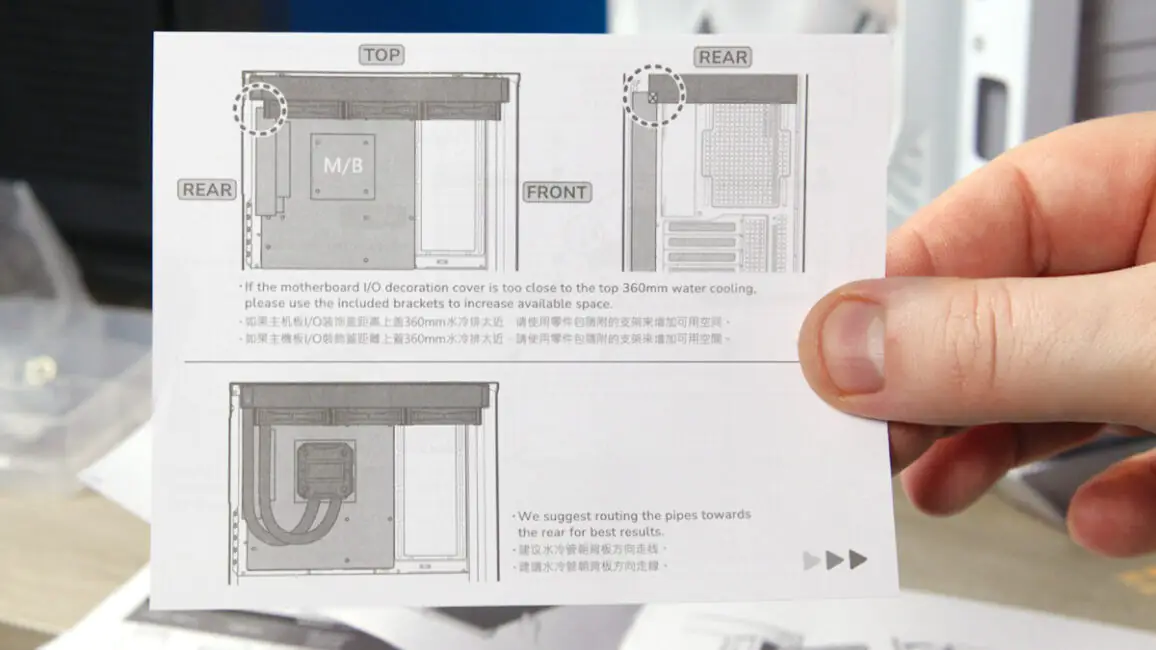© ROOT-NATION.com - Use of content is permitted with a backlink.
My interest in Mini Tower computer cases has been growing with each review, and for good reason. It’s always interesting to see what compromises manufacturers make to ensure the case is both appealing and reasonably priced. With the Cougar MX600 Mini RGB, the key feature is fairly clear—160mm fans. The only question left is whether this model has any hidden drawbacks that might outweigh this advantage.
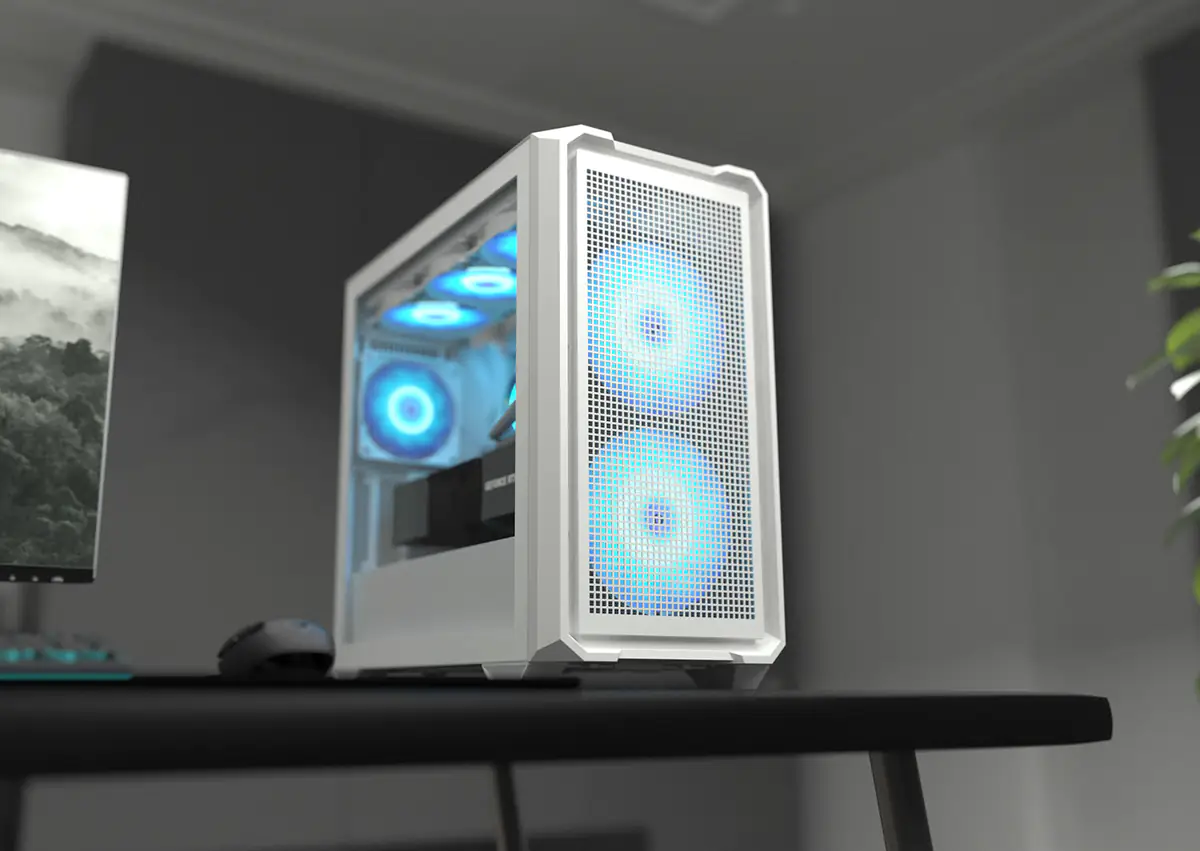
Technical characteristics
- The form factor of the case: Mini Tower
- Motherboard type: Mini ITX / Micro ATX
- Dimensions: 232×445×456 mm
- I/O panel: Type-C 10 Gbit, 2×USB 3.0, 4-pin audio jack for
- headset and RGB button
- Expansion slots: 5
- Pre-installed fans: 2×160 mm, 1×120 mm
- Maximum number of fans: 10
- Radiator support: up to 360 mm up, up to 240 mm to the side, 120 mm to the rear
- Max. video card length: 380/255 mm
- CPU cooler height: up to 175 mm
- Power supply length: up to 180 mm
Cougar MX600 Mini RGB video review

Price
The price of the case is just under $100, or around €98. For Mini Tower cases, this price is right in the middle, between premium options and more budget-friendly ones. The previous Cougar case I reviewed, also a Mini Tower, was the Cougar Uniface Mini RGB, which was about a thousand hryvnias cheaper. It’s also worth noting that Cougar offers a non-Mini version of the MX600, which I’ve already reviewed.
Package contents
The packaging of the case is standard, with foam spacers and a plastic cover. However, the included accessories are surprisingly nice. They’re stored in a plastic box with compartments, which also contains additional pads for liquid cooling. Instructions on how to use them are tucked away in the main manual.
Design
Visually, the Cougar MX600 Mini RGB doesn’t differ much from its Full Tower counterpart. The design of the front panel is similar, the plastic profile closely resembles the larger model, and it also features 4mm tempered glass.
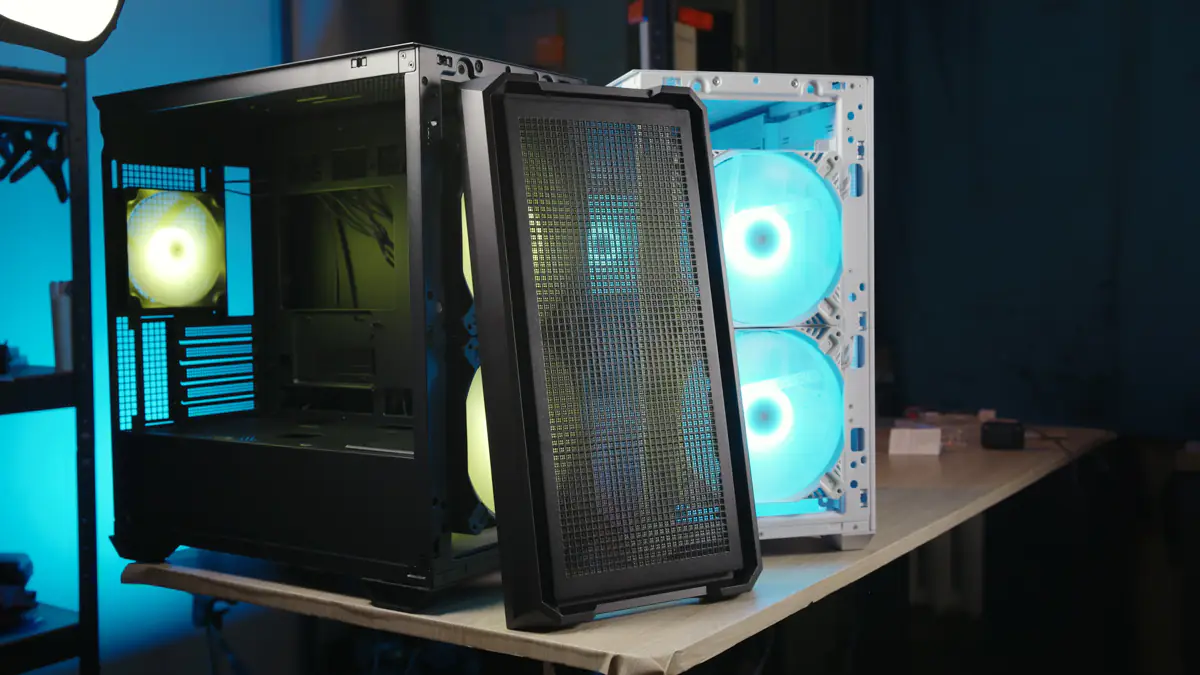
The first detail worth mentioning is that the side panels are neither magnetically attached nor secured with screws, whether thumb or regular ones. Instead, they use special ball clamps. While the concept itself is great, the clamps are VERY stiff. The panels require a fair amount of force to remove, and it’s easy to scrape your fingers in the process. This could be an issue, especially since there are three clamps around the entire perimeter.
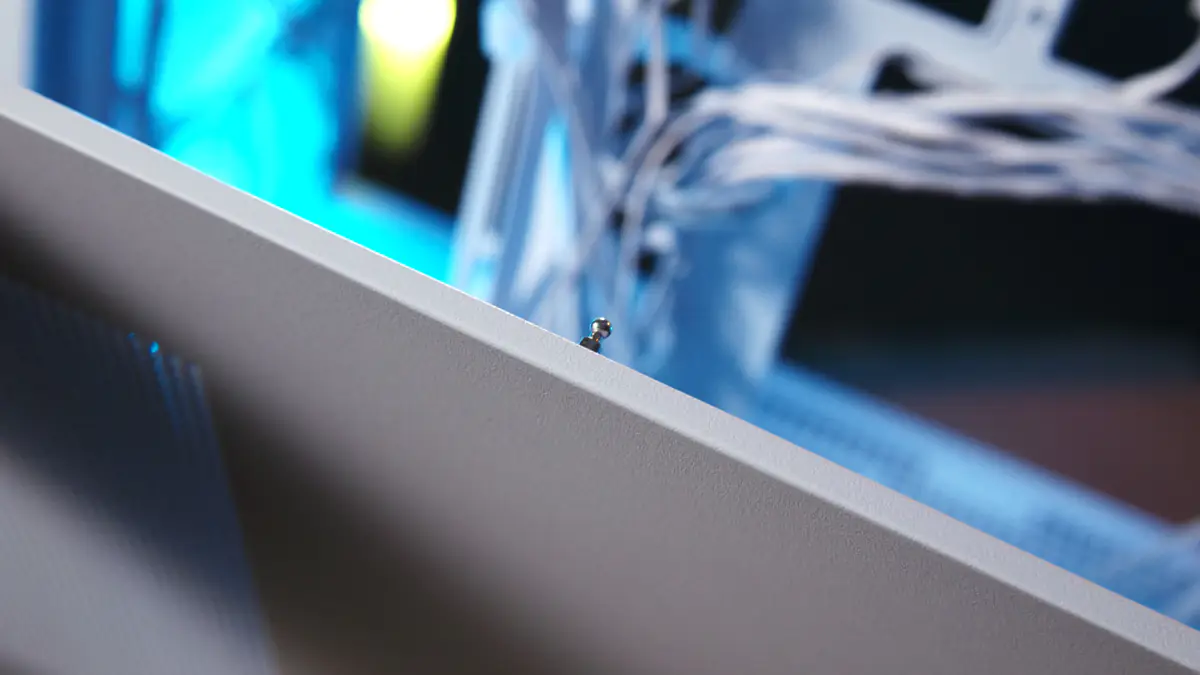
One of the first things noticeable in the MX600 that’s missing in the MX600 Mini is the mesh at the bottom, which helps with GPU cooling. It might seem like a limitation due to the smaller size, but despite this, the Mini Tower still accommodates 160mm fans. So, let’s talk about those.
Fans
The fans used here are JGR160 models, with speeds ranging from 400 to 1200 RPM. Yes, they are PWM-controlled and consume just under 6W each when both running at full speed and with the RGB lighting on, which looks pretty good. There’s not much information available about them, but the noise tests were conducted at maximum speed, just to clarify. The test results can be found in the video review above.
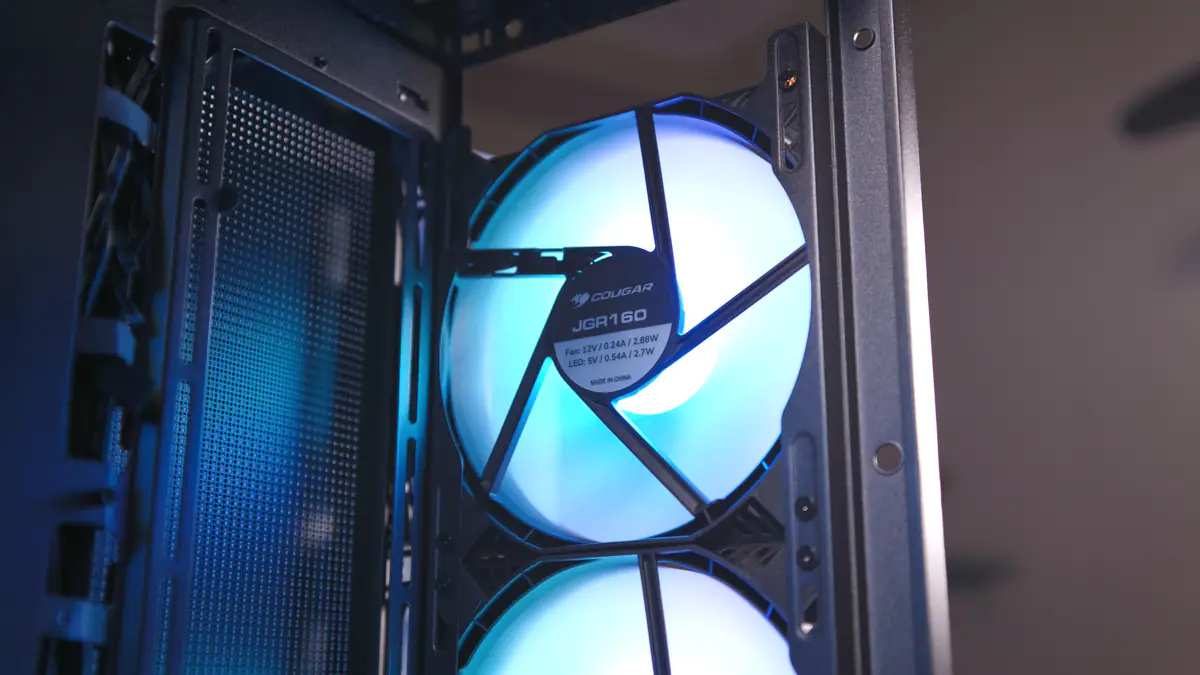
To the question of why reinvent the wheel when there are 140mm fans available, I’d answer simply: you’ve probably never heard of 200mm fans. They do exist, though, typically in cases of a different format and price range. Also, from what I’ve heard—though don’t quote me on this—200mm fans tend to break down relatively quickly, even at low speeds, because the load on the axle is quite heavy.
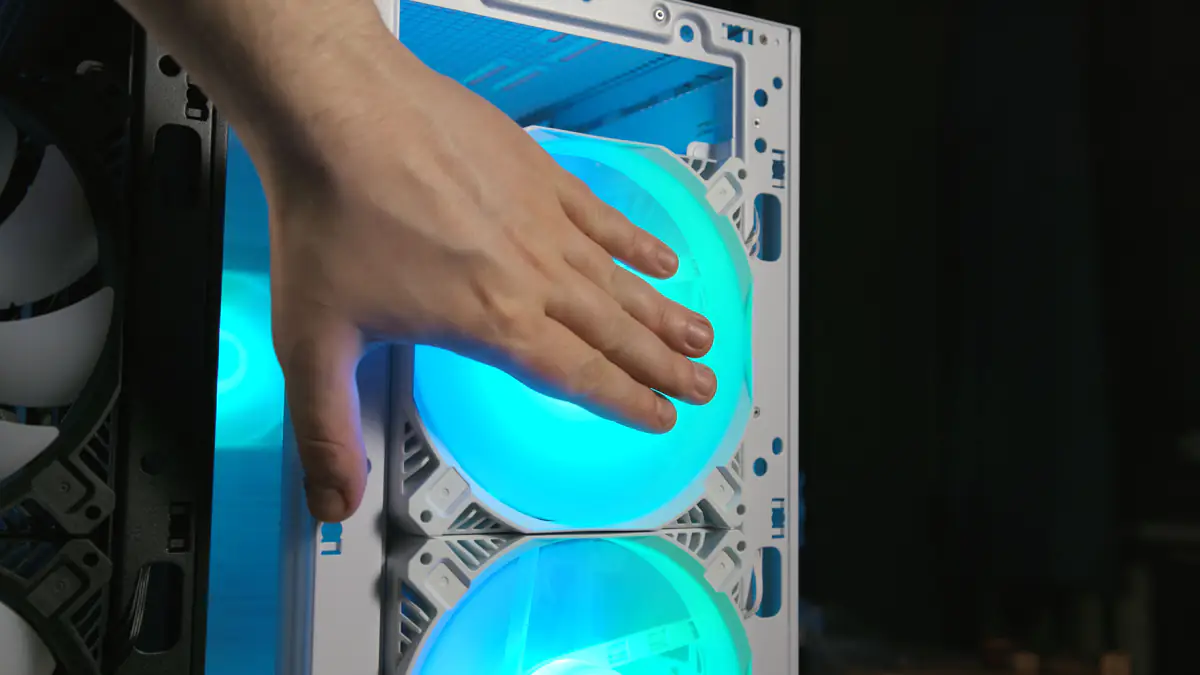
160mm fans are a much more practical solution, for the same reason 140mm fans are better than 120mm ones: less noise while moving a SIGNIFICANTLY larger amount of air. And considering the airflow path toward the bottom of the case, some of that air will at least somewhat reach the GPU. It’s not quite like in the MX600, but it’s definitely better than in 99% of other cases where there’s no airflow in that area at all.
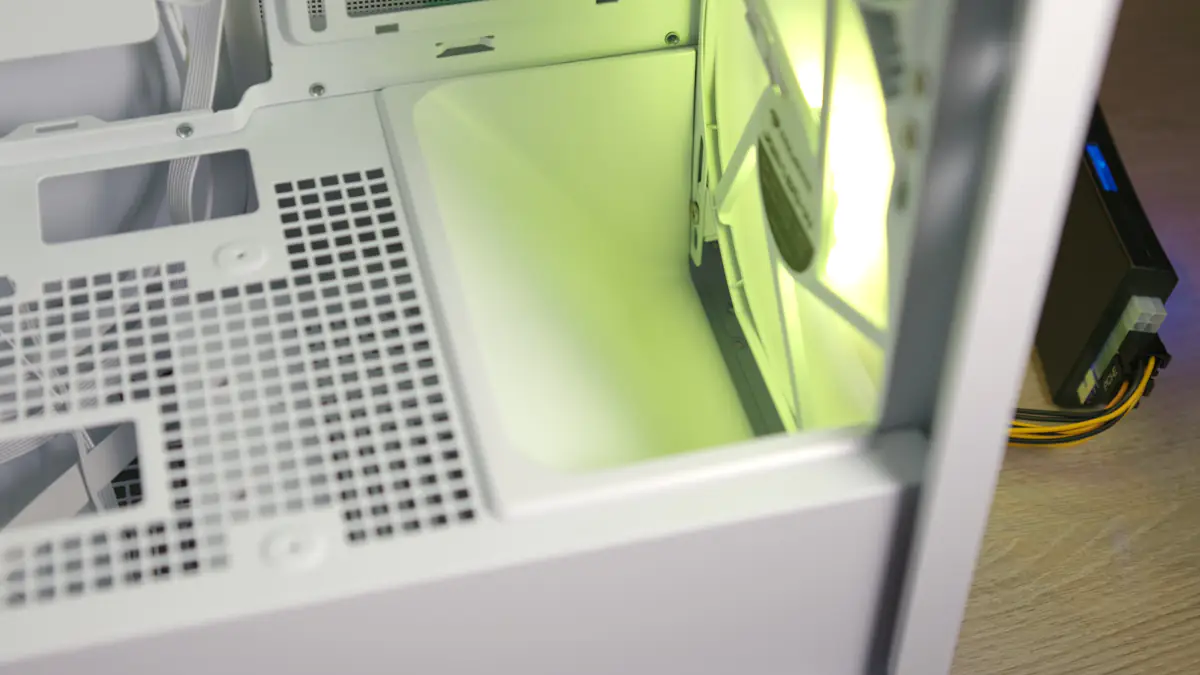
The overall fan compatibility is up to 10 fans. You can install up to three 120mm fans at the top, with one 120mm fan at the rear, which is included in the package, just to remind you. Two fans are positioned at the front, and… you can add two more 120mm fans if needed.
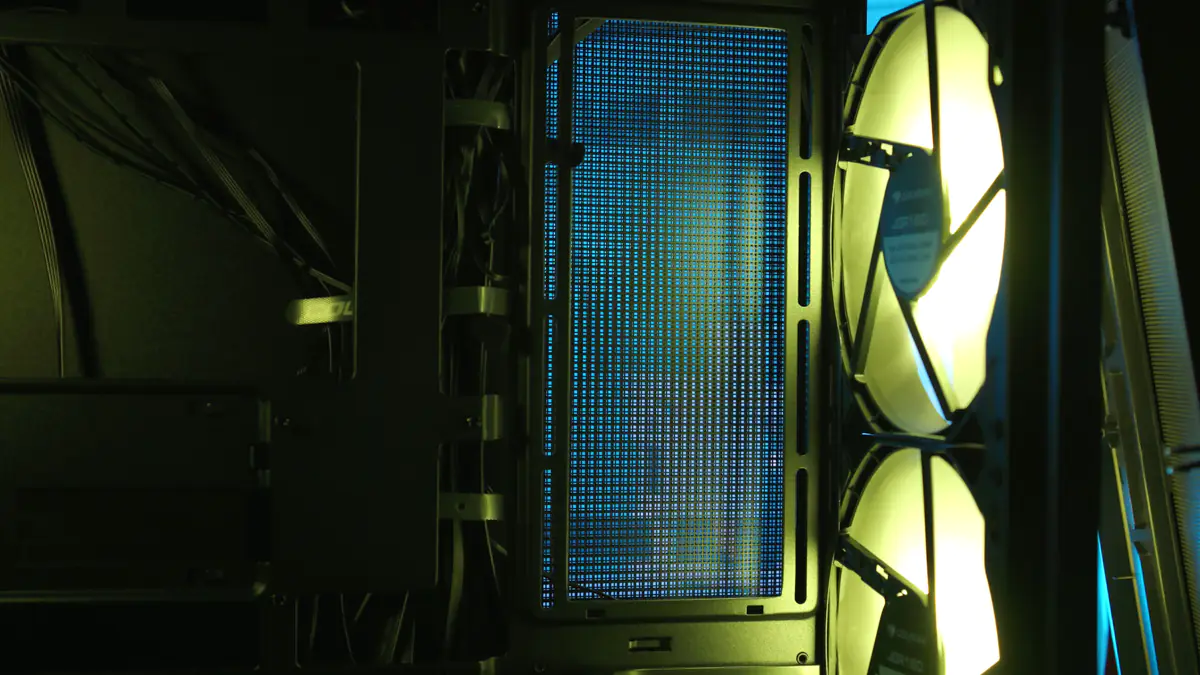
Two fans can also be installed on the power supply shroud with perforation. This time, Cougar has included this detail in the documentation, whereas with previous models, it was more of a surprise for those who were particularly attentive and curious.
Filters and compatibility
A positive aspect is that the side ventilation is equipped with a magnetic dust filter, just like the top ventilation. The bottom has a solid filter on rails, and the front features a mesh. On the downside, the front fan mounting is NOT universal—it only supports 160mm fans, not 120mm or 140mm ones.
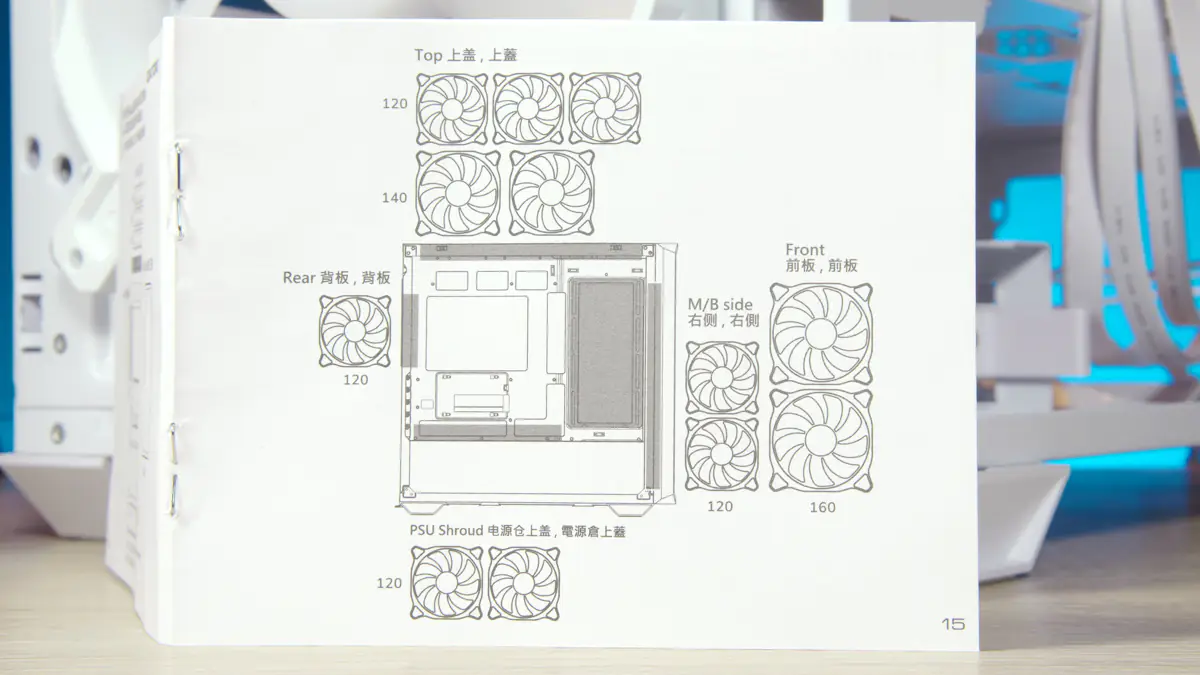
So, if something happens to the included fans, smaller sizes won’t be a direct replacement. They would fit, but you’d need adapters, which aren’t available for sale. I found a 3D-printable file for the Lian Li Lancool 216, but those adapters are meant to be universal.
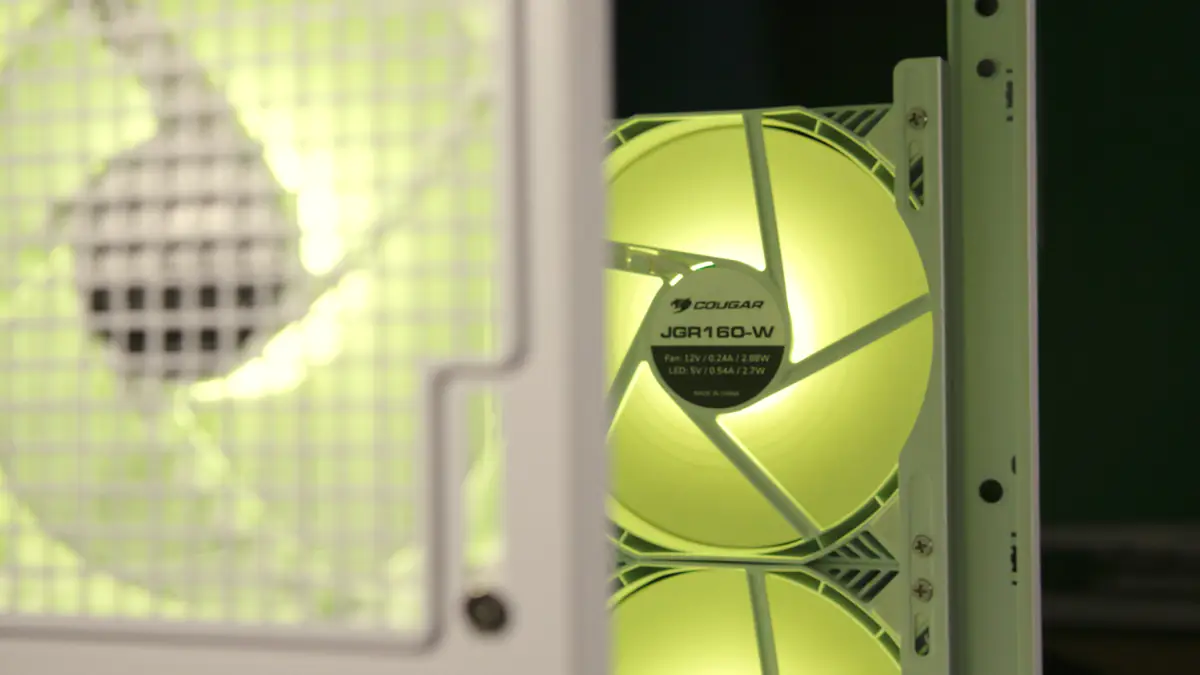
The fan control is managed by a 6-position hub, which handles both RGB and PWM. It offers plenty of lighting modes and can sync with motherboards, as well as completely turn off the lighting if needed.
Liquid cooling support
For water cooling, the radiator can be mounted at the top with a maximum size of 360mm, 240mm at the front, or 120mm at the rear. However, there are a couple of nuances with the radiators. First, a 360mm radiator might interfere with the motherboard, which is why Cougar includes spacers in the package to help with installation.
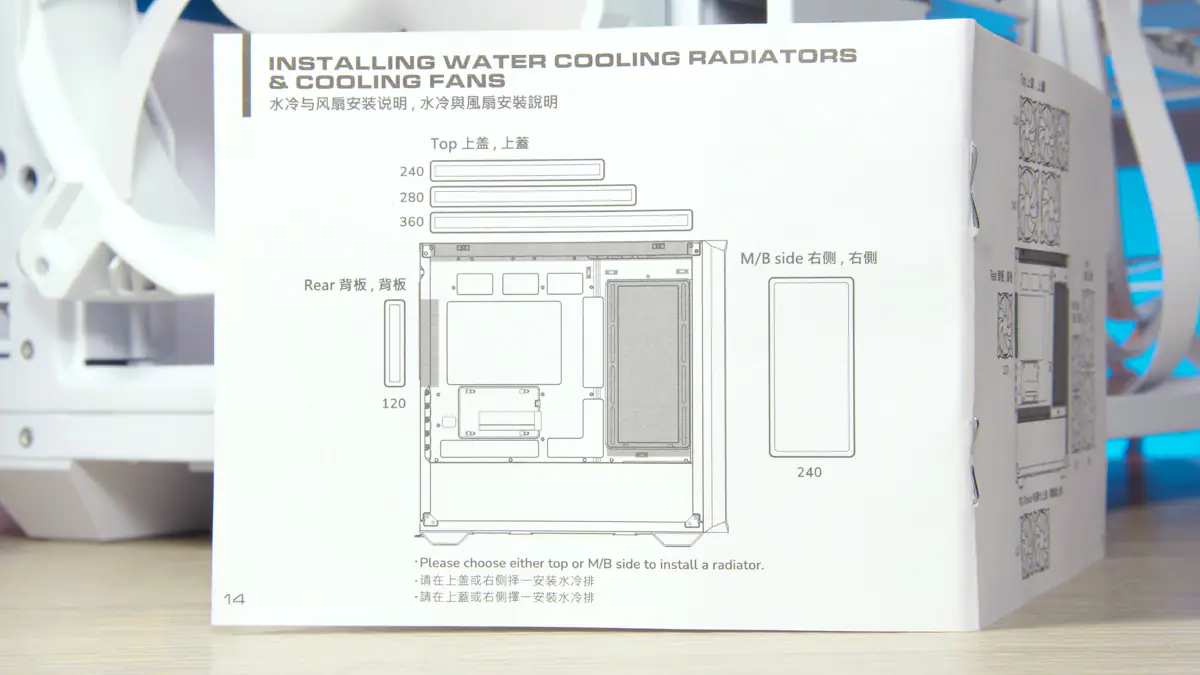
And secondly, the side-mounted radiator can interfere with the top-mounted radiator.
Compatibility with other components
As for other details, the front panel features three USB ports: two 5Gbps Type-A ports and one 10Gbps Type-C port. Additionally, there’s a power button, a reset button, an audio jack, and power indicators.
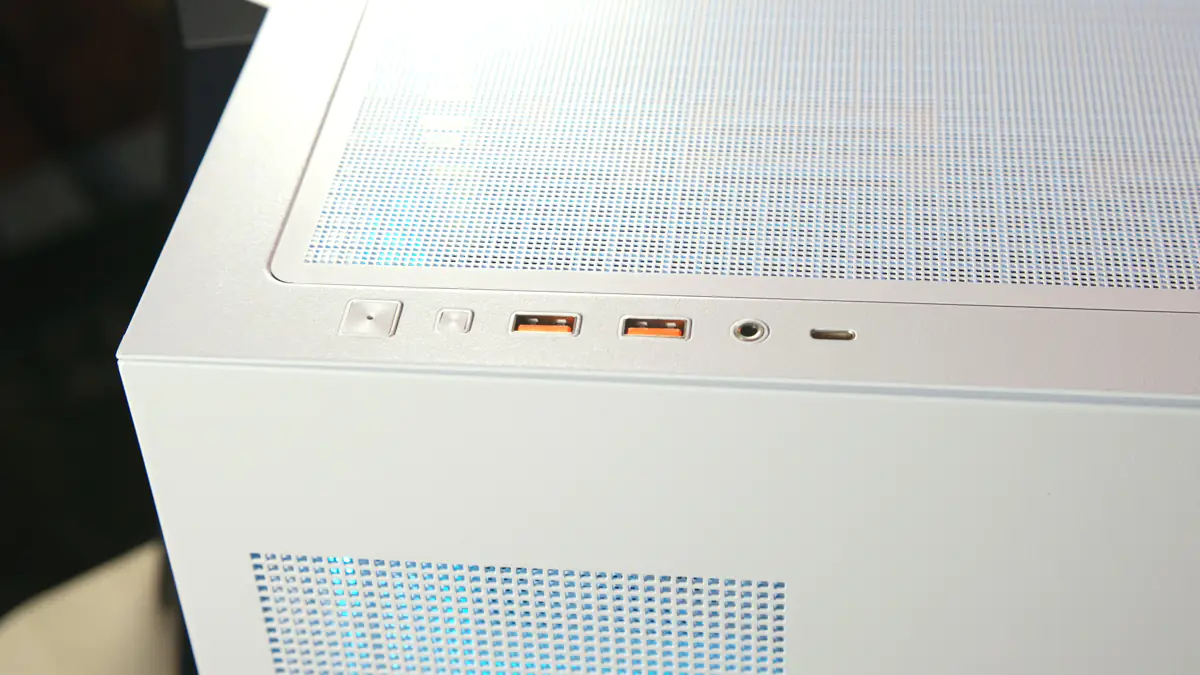
Motherboard compatibility is typical for a Mini Tower, supporting Mini ITX and Micro ATX boards. However, it’s worth noting the support for boards with reversed connectors, but only for ASUS BTF and MSI Project Zero models.
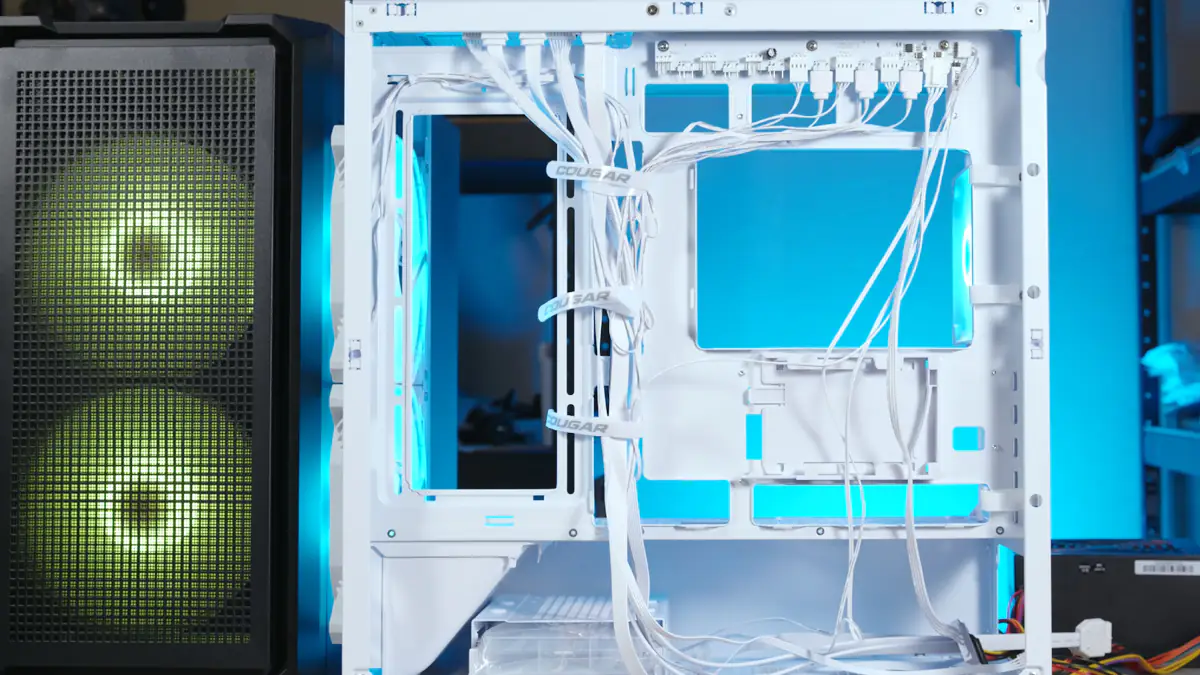
GPU compatibility is up to 380mm, even with side fans installed, or 255mm if there’s a side-mounted water cooler. The most powerful GPU that fits the 255mm limitation is the MSI Ventus 2X OC RTX 4070 Ti SUPER, which is quite good overall. However, when it comes to water cooling, things get a bit more tricky. For CPU coolers, the maximum height is 175mm, and for power supplies, the maximum length is 180mm.
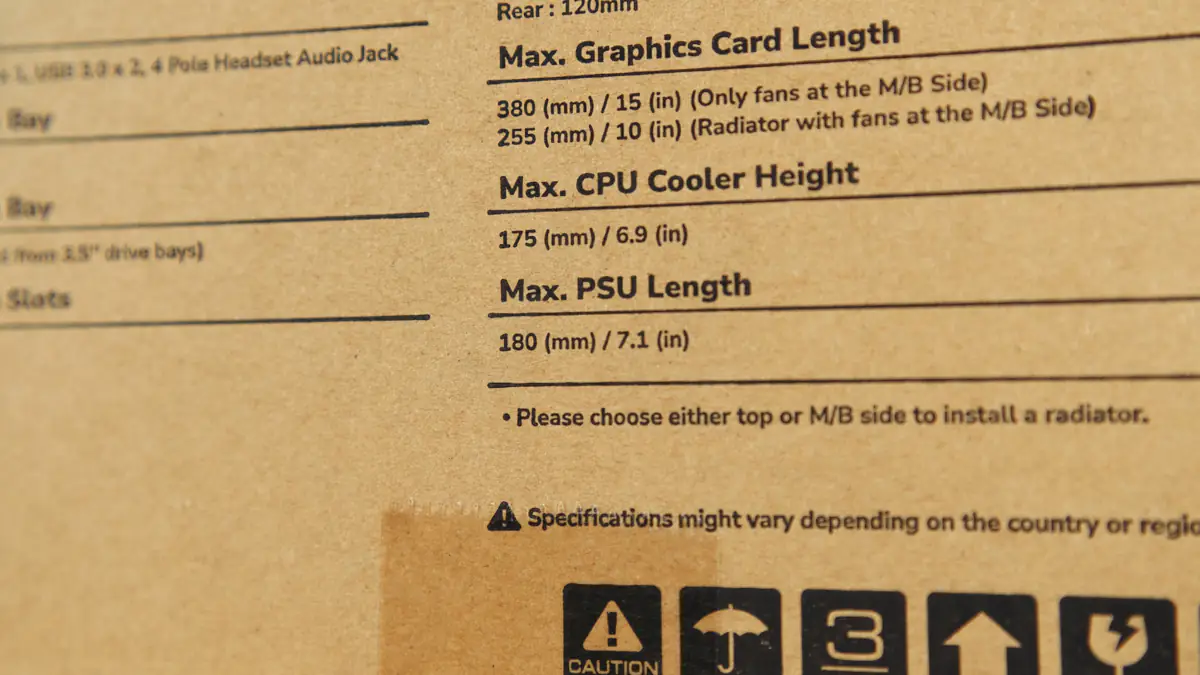
What worries me the most is the drive cage. It’s removable by unscrewing it from the bottom and supports two 3.5-inch drives or two 2.5-inch drives. Additionally, there’s another 2.5-inch mounting spot behind the motherboard plate, which uses a clever clip mechanism.
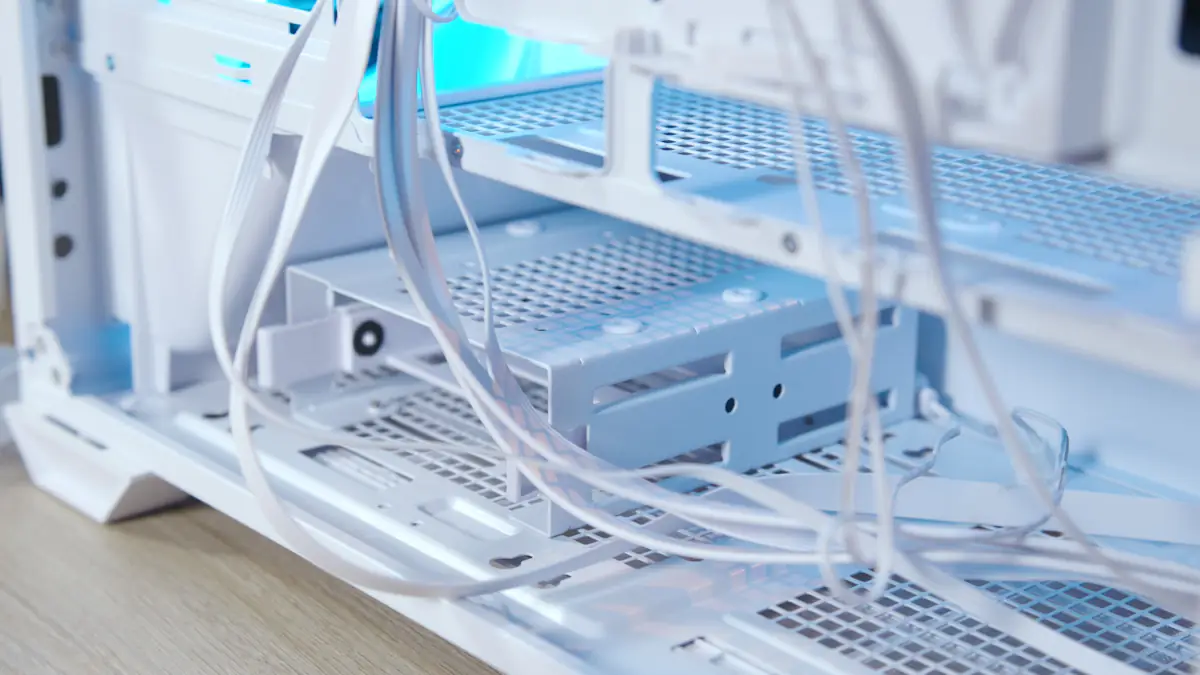
So why does the drive cage worry me? Because it’s positioned very close to the power supply. I suspect that when Cougar mentions a 180mm PSU length, they’re referring to the measurement with the drive cage removed.
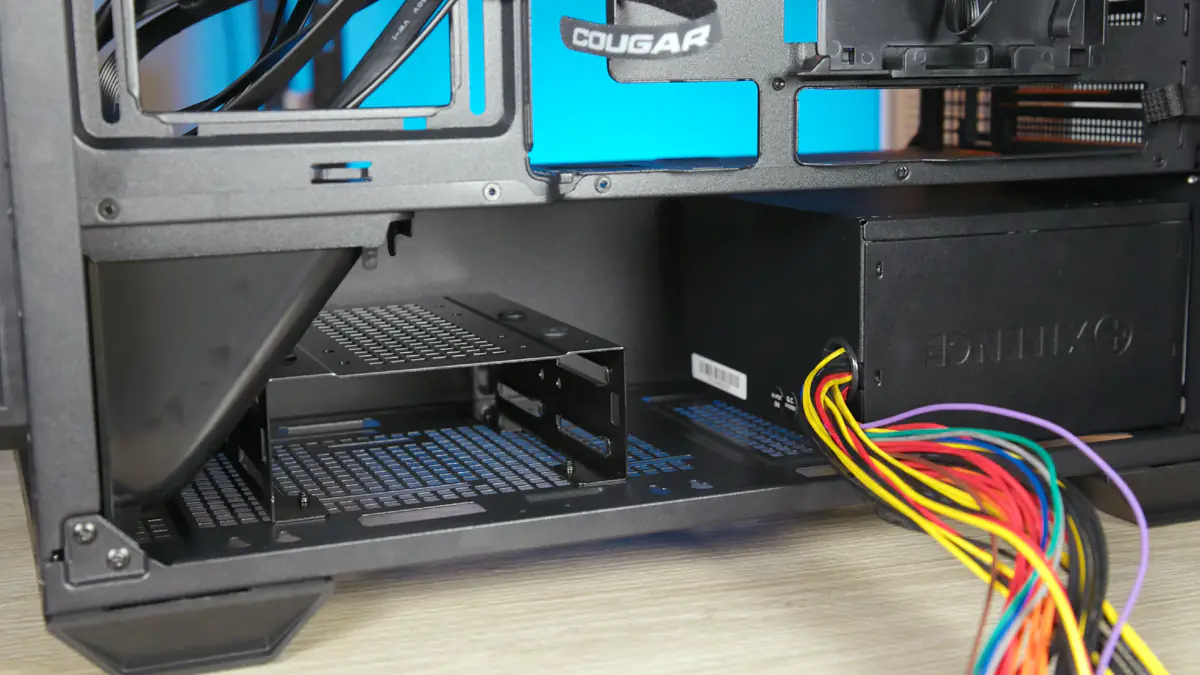
Because the cables will get in the way. It seems like you could move the drive cage sideways, and there’s even a set of mounting brackets for that, but it would require removing the airflow shroud at the front. This is tricky because the shroud is held in place by very tight clips. If it were screwed in, it would be much easier to remove. Also, one small detail: the cage is already positioned as far from the power supply as possible by default, which seems almost funny.
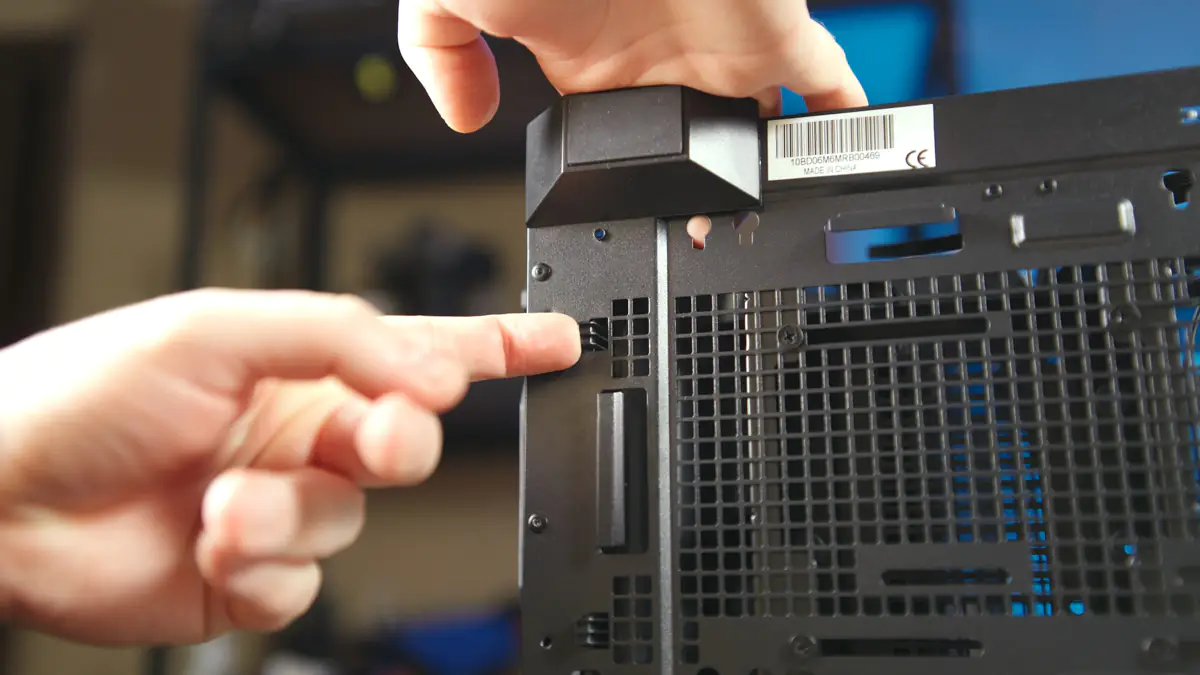
On the plus side, cable management here is excellent. The gap along the edges is huge and even accommodates screw mounts with Velcro straps. There are plenty of holes in the mounting plate, and their sizes are ample. At the center, on the rear side, there are even cable ties by default that help manage the cables, and the metal is bent to protect them.
Conclusions
The Cougar MX600 Mini RGB offers a lot of possibilities and is unique in many ways, but it does have a problem. That problem is that while the case is compatible with a lot of things, not all of them can be used at the same time. Want a long graphics card? Don’t install a side-mounted radiator. Want a long power supply and the radiator cage at the same time? You’ll need to remove the front guide. But even then, it might not help.
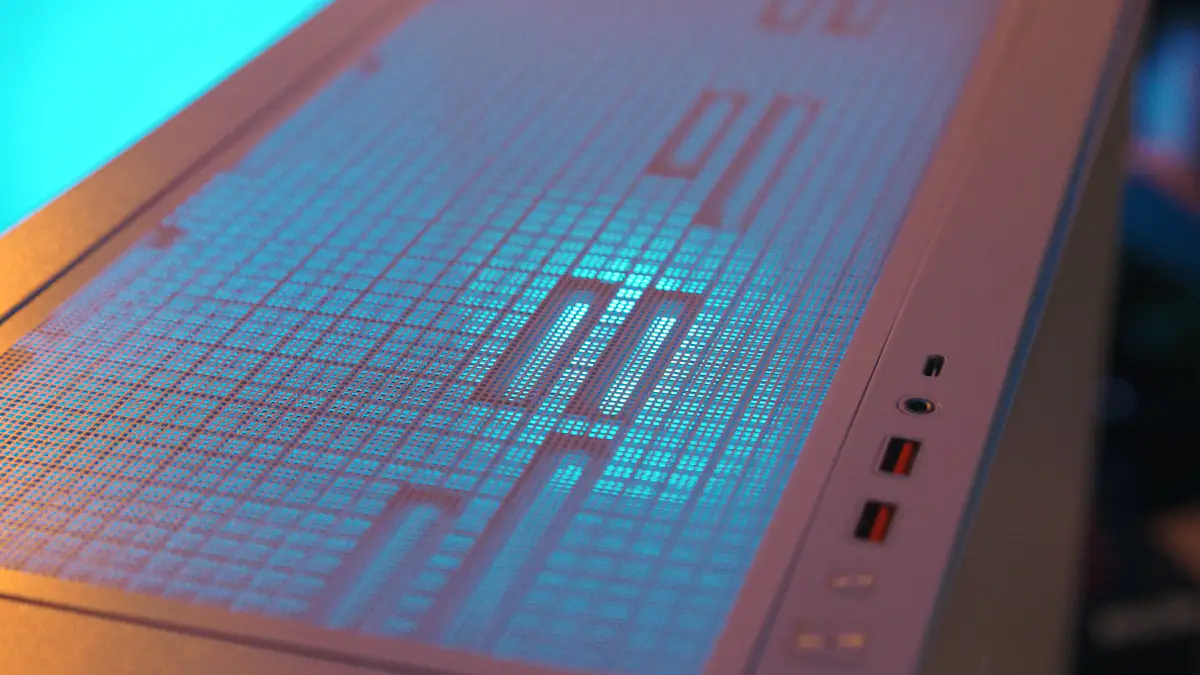
This can be easily forgiven given that the case is a Mini Tower format. And once again, the 160mm fans turned out to be better than I expected. So, overall, yes, I would recommend it.
Read also:
- Review and Comparison: Zalman Z10 Plus vs. Zalman Z10 Cases
- Cougar Uniface Mini RGB Mini Tower Case Review
- Cougar MX220 RGB Case Review


